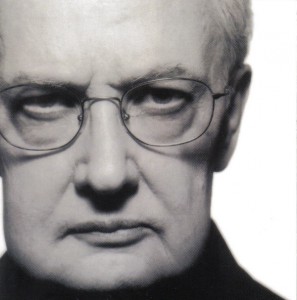 This is the first in a series of articles that will showcase the people, organizations, companies, and government agencies that tried to ban slasher films in the early 1980s.
This is the first in a series of articles that will showcase the people, organizations, companies, and government agencies that tried to ban slasher films in the early 1980s.
The first member of our rogues gallery is film critic Roger Ebert, who savaged the slasher film in his columns for The Chicago Sun-Times and on the television programs Sneak Preview and At the Movies.
Before I go further I would like to point out that this isn’t a personal attack against Roger Ebert. His protests against the slasher film have made him a part of the genre’s history and should be recorded. I do own several of his books and enjoy reading his reviews for slasher films no matter how negative they may be. His writing can be extremely funny even if it does border on elitist snobbery when discussing slashers.
The Critic’s Crusade started with I Spit on Your Grave (a.k.a. Day of the Woman) before taking up arms against Maniac, Friday the 13th, and all of the other slashers released during the genre’s golden age. Attacking a film one finds offensive is understandable, but Mr. Ebert often crossed the line by savaging theater owners for showing the films and the audiences for attending the screenings. He refers to the I Spit on Your Grave audience as “vicarious sex criminals.” On television, Ebert labeled slashers as dangerous films for dangerous minds. These depraved films appealed to the dark, deranged underbelly of society and would only lead to societal decay if left unchecked.
Mr. Ebert’s attacks against slasher films did have an impact on box-office receipts but not in the way he had hoped. Day of the Woman bombed when it was originally released but made a fortune after a title change and Ebert’s rants in the media. The attacks on Maniac helped the film turn a profit for investors shortly after it was unleashed in theaters. All of this rapid money making caused other producers and directors to crank out even more slasher films in the hopes of generating fast cash. Perhaps this is what most offended Mr. Ebert, slasher films made money while the art films he loved vanished from theaters after one week.
It seems rather ironic to me that Roger Ebert, a film critic, would get so involved in an effort to ban slashers just because he hated the genre. Ebert was born in 1942 which means he lived through the witch hunts that targeted Communists in Hollywood, horror comic books, and rock & roll during the 1950s. He had to know lives, careers, and companies could be ruined if his crusade succeeded.
A great deal has changed for Roger Ebert in the nearly thirty years since he lead the charge against slasher films. His very public battle with cancer has left him without a physical voice. Soon, Mr. Ebert may find himself without a media voice as well. The television shows are gone. His newspaper, The Chicago Sun-Times, is in so much financial trouble that it could either go bankrupt or become nationalized by the US government. In a completely unexpected yet strangely poetic twist , the slasher films Roger Ebert despised in the 1980s are being remade, which means he has to watch them all over again.

Pingback: To The Kill « Blanked as Ordered